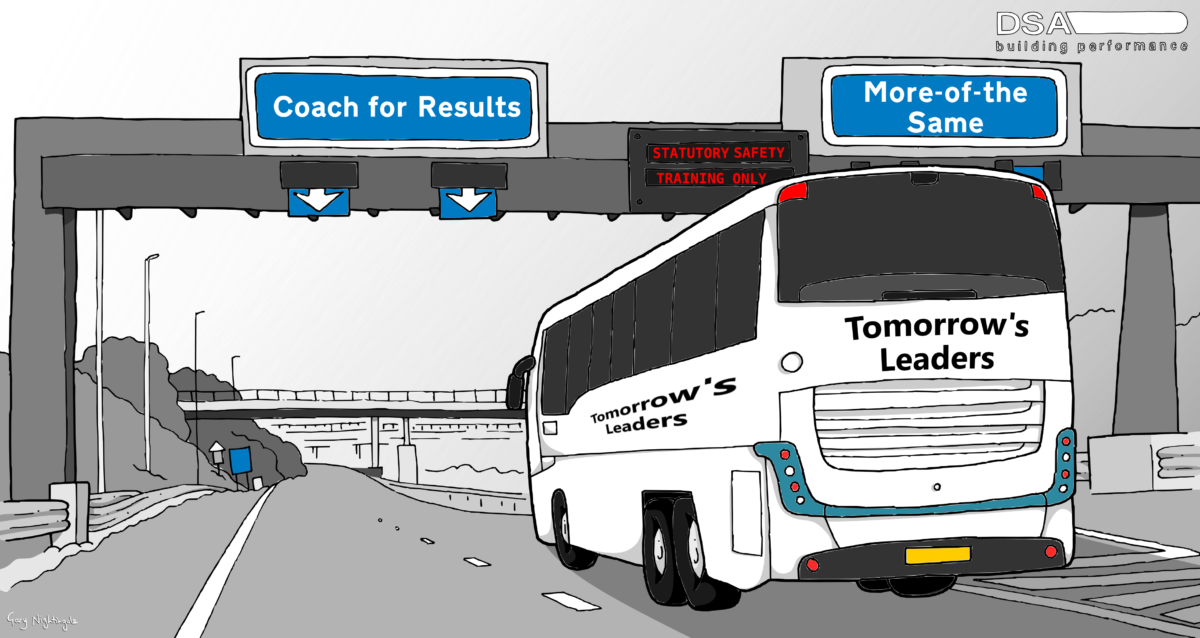Engineer or manager? It’s time to decide

I trained as an engineer but the money, best cars and career prospects were all in management, so I became a manager.
No one taught me how to get the best out of people, build a team or gain commitment but that was okay because no one else was trained in that stuff either. In that sense, it was a level playing field and I shimmied up the greasy pole.
Thirty years later not much has changed from what I can see in my coaching work, except that the level of complexity and stress have gone up several notches.
Perhaps you’re like I was then: in management and held to account for other peoples’ performance, but not really knowing how to get them to perform.
You hear yourself saying we can’t get good staff, people lack commitment and there’s no accountability around here. And people seem to be leaving.
Things are slipping. People keep their heads down and you take the rap. You don’t know what to do about it other than work harder, faster and longer. You take work home and allocate holiday time to keep up with your ever-expanding inbox.
And you hear yourself thinking: “Why do I have to do all the thinking around here?”
Tyranny of the technical
The thing is, I was great at sorting technical problems because that was my training and comfort zone.
But solving other people’s problems wasn’t what they were paying me to do. Looking back, it seems now that I was in the habit of working at least a couple of pay grades below mine, interfering in other people’s work.
What should I have been doing instead? There will be a number of answers to this but one sticks out: I should have been building effective teams of competent, accountable people who can solve their own problems and prevent them from happening in the first place.
This is getting great results through people, not in spite of people, but they didn’t teach that in my civil engineering degree.


Coach for Results
Designed with young professionals in mind
Perform better in your current role, become an effective manager and over time a great leader and together we will change the construction industry.
Coaching as a management style
Some 25 years ago, the company I worked for put me on a course to learn how to coach, the idea being that some of us managers would be trained to coach others in how to manage more effectively.
That taught me that the basic techniques of coaching work very well in managing people in a way that builds confidence, trust and engagement so that great things are happening even though it’s not you doing it all.
So, I created a course called Coach for Results that teaches construction professionals in or heading for management roles the essentials of a coaching management style.
It’s delivered through the CIOB Academy and costs £149 + VAT. It’s comprised of short video lessons that you can watch whenever you want, and has things to try out in your work to get started.
The feedback has been great:
“I felt the course was really useful and relevant to my role and development,” says participant Holly Williams, who recently completed the course. “I will definitely be changing up my style moving forwards and speaking to colleagues about how we can use coaching styles to be more effective.”
Why is it so cheap?
I’m initially targeting young professionals, and they haven’t got much money. I’m targeting them because research suggests this generation wants to be coached, and they want to coach, but they don’t know how and nor do their bosses.
And I’m looking to get thousands of them through the course so they can start a movement, a different style of management, to change the industry from the ground up.
Fork in the road
It’s also cheap because I want companies to put as many of their young professionals through the course as possible.
In return they’ll get a cohort of internal change agents to drive their strategic objectives from the ground up.
So, there’s a fork in the road for you as an individual: learn an effective management style or do more of the same, treating people as if they conformed to the laws of physics.
And there’s a fork in the road for your company: train swathes of your staff in good people skills or keep it to statutory safety training and not much else.
Coach for Results is here – next course starts on 2nd November.
